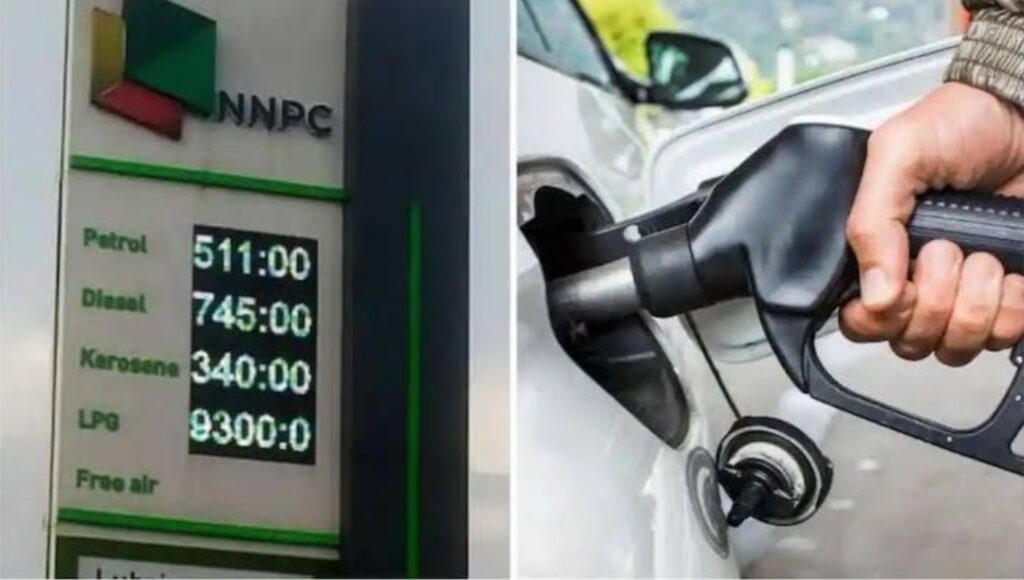Petrol Prices Drop to N939.5/Litre as Dangote Refinery Reduces Petrol Price, Marketers Seek Bulk Supplies

In a significant development that has sent ripples through Nigeria’s fuel industry, petrol prices have dropped to N939.5 per liter following a reduction in the price of petrol by the Dangote Refinery. This move by Africa’s largest refinery is seen as a positive step towards stabilizing Nigeria’s fuel market, which has been plagued by fluctuating prices, shortages, and the country’s dependency on imports. In response to this price reduction, petroleum marketers are now seeking bulk supplies to meet growing demand and ensure a steady supply of petrol across the nation.
The Price Drop and Its Impact:
The recent reduction in petrol prices has sparked optimism among Nigerian consumers and businesses, many of whom have struggled with high fuel prices in recent months. With the cost of fuel impacting transportation, the cost of goods, and overall living expenses, the price drop comes as a welcome relief. The new price of N939.5 per liter is expected to have a cascading effect on various sectors of the economy, including transportation, logistics, and manufacturing, as the cost of fuel plays a critical role in the price of goods and services.
The Dangote Refinery’s decision to reduce its price of petrol is a notable move in a market that has traditionally been dominated by imports. Nigeria, despite being one of the largest oil producers in the world, has faced challenges in meeting its domestic fuel needs due to the underperformance of its aging refineries. The Dangote Refinery, which began operations in 2023, is expected to play a critical role in reducing Nigeria’s reliance on fuel imports and stabilizing prices in the long run.
Dangote Refinery’s Role in the Market:
The Dangote Refinery’s decision to reduce petrol prices is a reflection of its growing capacity to meet the demand for refined petroleum products in Nigeria. As one of the largest private refineries in the world, Dangote’s facility has the capacity to produce up to 650,000 barrels of crude oil per day. This has allowed it to play a crucial role in addressing Nigeria’s fuel supply issues.
The price reduction is seen as a strategic move to remain competitive in the Nigerian market, where fuel prices have fluctuated due to various factors, including the devaluation of the naira and global oil price changes. By offering petrol at a more competitive rate, the Dangote Refinery is helping to reduce the overall cost burden on consumers and create a more stable pricing environment.
Marketers Seeking Bulk Supplies:
In response to the price reduction, petroleum marketers are now seeking to secure bulk supplies of petrol from Dangote Refinery to meet the growing demand for the product. These marketers, who operate across the country, are eager to purchase petrol in larger quantities to stock their stations and ensure a consistent supply for consumers.
The reduction in petrol prices has made it an attractive opportunity for marketers, who have struggled with the volatility of fuel prices in recent years. The move by Dangote Refinery to offer petrol at a lower price is expected to help marketers reduce the cost of procurement and, in turn, lower the price at which they sell petrol to consumers. However, marketers are also seeking assurances regarding the stability of the supply, as any disruption in the flow of petrol from the refinery could lead to shortages and price hikes.
Implications for Nigeria’s Fuel Supply and Economy:
The reduction in petrol prices by Dangote Refinery is expected to have significant implications for Nigeria’s fuel supply and the broader economy. One of the key impacts will be on the country’s foreign exchange reserves, as the reduction in imports of refined fuel will help conserve foreign exchange. Nigeria has long relied on the importation of refined petroleum products, which has placed a strain on the country’s foreign currency reserves and contributed to the devaluation of the naira.
By reducing the country’s reliance on imports, Dangote Refinery is helping to ensure a more self-sufficient fuel market. This could also have positive effects on Nigeria’s trade balance and overall economic stability. Additionally, the reduction in petrol prices is likely to ease the financial burden on Nigerian consumers, particularly in transportation and logistics, which are heavily dependent on fuel.
However, challenges remain. While the price reduction is a positive development, there are concerns about the long-term sustainability of the market. Some analysts warn that the country’s refineries, including Dangote’s, must continue to operate at optimal capacity to maintain stable prices and ensure a consistent supply. Moreover, the government will need to address other structural issues in the oil and gas sector, such as the regulation of prices and the promotion of competition, to avoid future price volatility.
In conclusion, the reduction in petrol prices to N939.5 per liter following Dangote Refinery’s price cut represents a positive step for Nigeria’s fuel market. It marks a turning point in the country’s efforts to achieve fuel self-sufficiency and reduce its dependency on imports. While the immediate effects of the price reduction are being felt positively by consumers and businesses, the sustainability of these changes will depend on the continued performance of the Dangote Refinery and the broader reform of Nigeria’s oil and gas sector. As marketers seek bulk supplies, the hope is that the country will see more stability in its fuel market, ultimately benefiting the Nigerian economy in the long run.





Responses